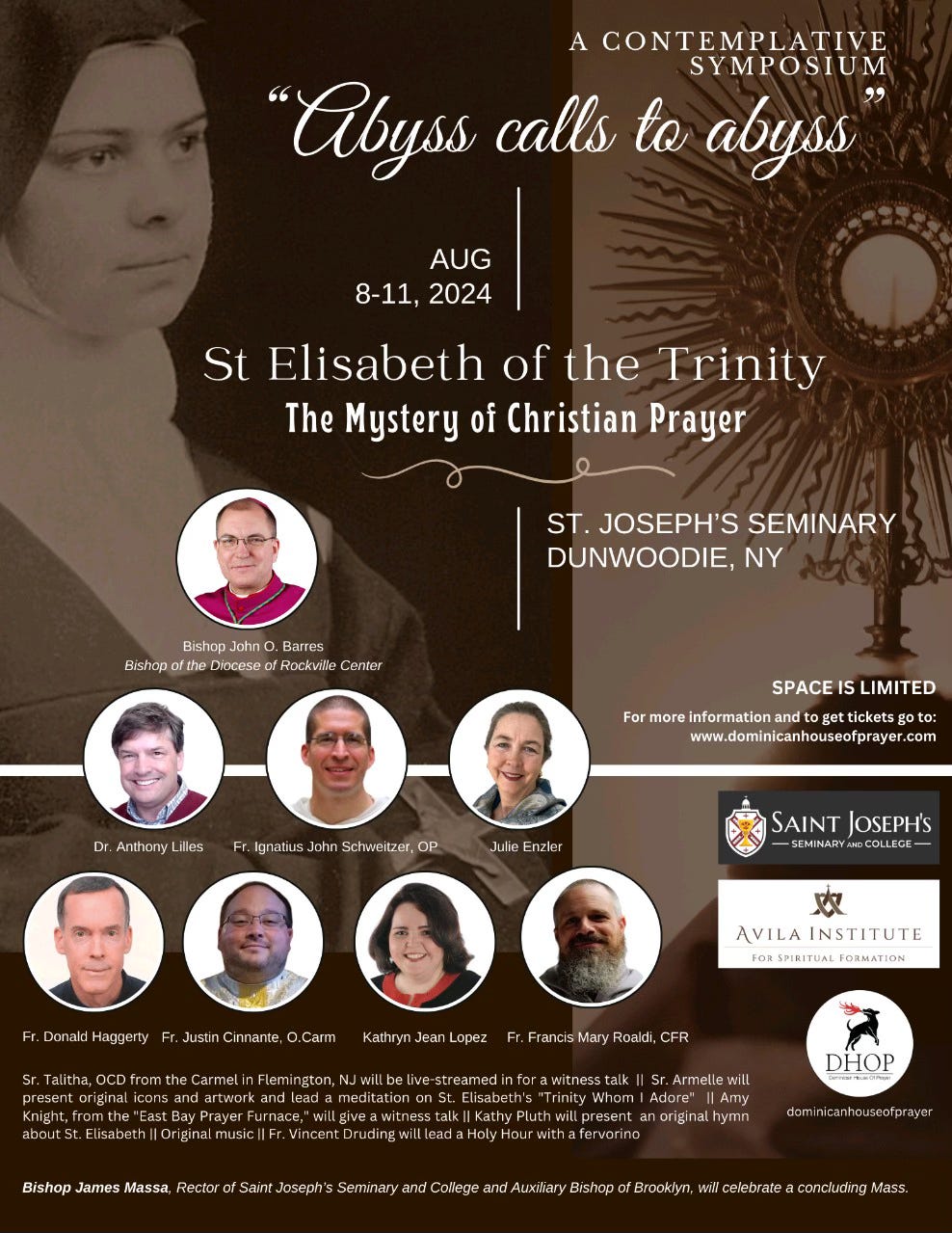Saint Elisabeth of the Trinity is a Carmelite mystic from Dijon, France whose writings contribute the devotion to the Holy Trinity and promote contemplative prayer. Her teachings draw from the Bible as well as classics of the Carmelite and Catholic spiritual tradition. There is a symposium from August 8-10 on her teachings with experts from across the country. On Saturday, August 9, I will also provide a reflection on mystical wisdom in her writings at Saint Joseph’s Seminary in Yonkers, New York. These are some thoughts on the topic.
Saint Elisabeth’s focus is narrow but very deep. Whether she writes retreats for her sister or her monastery, or prayers for herself, she points souls toward an experiential knowledge of God that spiritual writers call mystical wisdom. This knowledge is the effect of the Holy Spirit communicating the Word of the Father in a transforming way. Saint Elisabeth viewed her mission to help souls forget themselves and enter into the spiritual silence where this encounter with the Trinity unfolds.
Does she advocate for contemplative prayer or a way of life? She advocates for a contemplative life lived at the pace of prayer. She presumes a daily commitment to silent prayer, to daily Mass, to frequent confession, to the Rosary, and to spiritual reading. It is not merely the fulfilling of obligations to pray or completely a daily routine. It is the cultivation of an awareness of the Trinity that one then carries into every situation, even the most intensely active one. In the shadow of this kind of knowledge of God, she says we can even come to a point of not knowing anything but conformity to Christ and His passion. Indeed, her purpose is the renewal of the whole mystery of Christ in the soul.
This kind of wisdom comes by faith in Christ and His saving work. It is not possessed in a state of consciousness. It transcends all thought and feeling. It is a humble decision to believe what reason cannot see. She roots her understanding of this wisdom in the prayer and commands of Christ. She takes serious the consequences that the Son prayed for us to dwell with Him in the Father (John 17:24). She also counsels us to heed Christ who commanded us to “remain with” Him (John 15:4). Christ does not command the impossible and He obtains what He prays for. All we need to do is believe in His saving love. This love of God evokes healing movements of humility before the Lord, a simplification of one’s whole being under the shadow of the Father, and surrender to action of the Holy Spirit.
For her, no other kind of knowledge is as important as that which comes through believing in the love God in the midst of everything. It is the surrender of faith that Mary discloses before the words of the Angel. This is the choice to live buried in Christ’s presence whether at prayer or at work, whether with insight into what God is doing or in absence of insight. In this way of life everything becomes a sacrament that gives God, everything becomes prayer and draws one into longing for even more prayer. Such knowledge even opens to a mysterious participation in Christ’s work of redemption - so that one makes up in one’s own body what is lacking in the sufferings of Christ for the building up of His Body, the Church.





Thank you for this beautiful reflection. May your heart and the heart of each symposium participant be pierced and lead into the spacious depth of the Holy Trinity. We are so blessed to have the spiritual friendship of St Elizabeth of the Trinity.